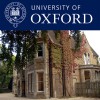How and why did a large majority of Jews survive the Holocaust in France?
Between the French defeat in 1940 and liberation in 1944, the Nazis killed almost 80,000 of France's Jews, both French and foreign. Since that time, this tragedy has been well-documented. But there are other stories hidden within it--ones neglected by historians. In 1940, the Jewish population stood at 300,000. In other words, 75 per cent of France's Jews escaped extermination. While 45% of the Jews of Belgium perished, and in the Netherlands only 20% survived, close to 90% of Jewish French nationals outlived the war. The Nazis were determined to destroy the Jews across Europe, and the Vichy regime collaborated in their deportation from France. So what is the meaning of this French exception?
In my talk, based on quantitative and qualitative data, I wish to shed light on this 'French enigma', painting a radically unfamiliar view of occupied France without minimizing antisemitism. I will present a multifactorial analysis which can explain the survival of Jews in occupied France, without forgetting the dead.
Jacques Semelin is Professor Emeritus of History and Political Science at Sciences Po, CERI, CNRS, Paris, focusing on the Holocaust and mass violence, as well as civil resistance and rescue. He is the author of the classic Unarmed Against Hitler: Civilian Resistance in Europe, 1939–1945 (Praeger), and Purify and Destroy: The Political Uses of Massacre and Genocide (Hurst/Columbia University Press).
This seminar originally took place on Tuesday 30th April at 5pm at the European Studies Centre




